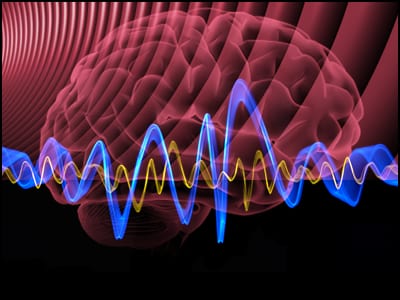By Paul von Bergen
We have all heard this phrase a million times and know it to be true. It is a simple concept that us humans are able to grasp. We know for instance that if we practice a sport we will get better at it, if we practice the piano our skills will improve, and if we practice lifting weights we will develop strength in those muscles and be able to lift more. So what about inhabiting our own mind? Do you ever practice that and what does it mean?
Our minds are incredible living things and certainly the most complicated things we know about in the whole universe. They have different layers from the most primitive to the most evolved. They are linked to our emotional response, our sensory input, the conscious and unconscious regulation of our organs and glands, our breathing, our stress triggers and of course, our thinking mind, that place where we can ponder the past and the future and develop ideas and actions. It’s an incredible mix of input and output and connections and pathways, and until relatively recently, it was thought that post childhood, adult brains were fixed and hard wired – “you can’t teach an old dog new tricks”.
For thousands of years meditation practitioners have known that the human mind can be re-sculpted and molded in different directions.
It is great that modern science has now caught up and for the past fifteen years talks of this concept as neural plasticity. Science now knows that when you repeat a pattern of thoughts, groups of neural pathways fire, and through repetition a compound called myelin is created which forms a sheath around the axon of the neurons. This sheath acts like a broadband connection in the mind, along certain pathways, and this is what creates patterns and habits of the mind. The brain waves travel more easily down these ‘well trodden paths’ and thus these become your conditioning.
The great news is that we can control this process. We can change the patterns and habits of our minds, we can sculpt them in any direction we like. This is important – if we just leave the mind to create its own patterns and habits based on its environmental input then all kinds of unhealthy patterns can emerge including stress, depression, addictions, cravings and general lifestyle diseases. It is both incredibly scary and incredibly exciting at the same time. You can program your mind to become anything you like, and all it takes is practice.
This is the fundamental teaching of meditation mindfulness. Through practising directing our awareness on different things we can consciously influence the creation of neural pathways in our mind, and when we practice this over and over again, these new pathways become our habits and our conditioning.
I like to talk about four stages to this process. We start with unconscious bad habits. These are habits and patterns of the mind that are not good for us and we are not even aware of them. It might be a physical habit (sitting a particular way), breathing habit (perhaps a short exhale) or a thinking habit (perhaps repetitive negative thoughts about image). Whatever the habitual pattern is though – we are not even aware of it. Stage two is that through our practice of yoga and meditation we become aware of our own patterns and we start to notice these unhealthy habits. They become conscious bad habits. Stage three is not to try and ‘get rid’ of these bad habits, that can be very frustrating and can often fail. Instead we consciously practice good habits, whether that is through physical postures designed to bring balance between strength and flexibility back to the body, or a breathing practice designed to lengthen the exhale to send calming signals to the subconscious nervous system or perhaps the practice of particular thinking patterns, where we repeat an intention or a mantra, often over and over again. This is the practice of conscious good habits. Then, via our repetitive practice of inhabiting our mind in a health way and through the magic of neural plasticity, we slowly rewire ourselves until eventually these healthy habits become unconscious, we don’t even have to try any more, we have created new healthy habitual patterns and we have changed ourselves. Maybe you can teach old dogs new tricks after all.
© Paul von Bergen 2013
Paul is the teaching director at Billabong Retreat Sydney offering meditation, mindfulness and yoga retreats. www.billabongretreat.com.au

